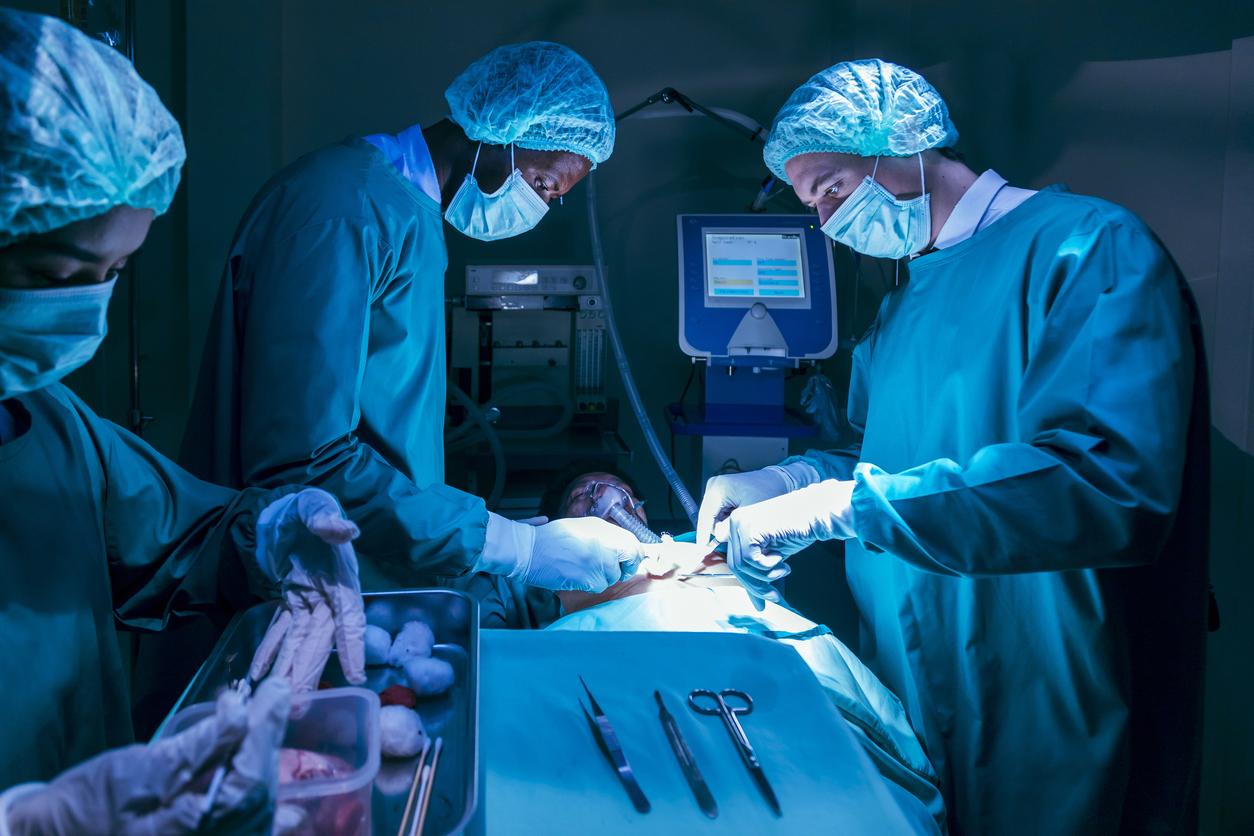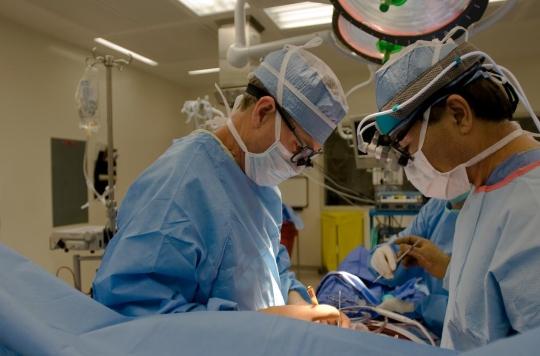Isabelle Dinoire, the first patient in the world to benefit from a face transplant, died four months ago. She had been disfigured by her dog in her sleep.

Isabelle Dinoire, the first patient in the world to benefit from a face transplant, died on April 22 at the age of 49, announced on Tuesday the University Hospital of Amiens-Picardie, the establishment where she had been operated in 2005. ” In accordance with the wishes of his relatives, no death notice had then been published in the press, to preserve their legitimate privacy in these painful moments “, indicates the hospital in a short press release, adding that she” died after a long illness. “
Thanks to this world first performed by the teams of Professor Bernard Devauchelle, Isabelle Dinoire had found a face and an almost normal life. But many obstacles have arisen over the past 11 years. Last winter, her body still rejects her new face, she loses the use of her lips. Its heavy anti-rejection treatments would also have favored the development of two cancers. The patient knew that these treatment complications could occur.
A medical achievement
Attacked by her dog in her sleep when she had swallowed a large dose of sleeping pills, she had discovered her disfigured face when she woke up. She no longer had a nose or mouth, could no longer swallow and was feeding with a probe. She no longer dared to leave her room without a mask. “I slipped into another world,” she confided. So, when the surgeons offered her the partial frontal transplant, she did not hesitate.
“The next day, I asked to see my face. It was wonderful. Wonderful to no longer have a hole and to have the shape of a face like everyone else, ”she says in a video published in 2014 (see below). The young woman must then relearn how to speak, eat, drink, smile.
Since her operation, more than thirty people around the world have benefited from a face transplant.
Face transplant: a long medical journey
Patients who have had a full or partial frontal transplant will face the consequences of the operation all their lives. However, some of them are not ready to face the risks of rejection of the transplant, the potentially serious side effects of the treatments, or with regard to the other, according to one french study appeared in The Lancet.
Conducted by Dr Laurent Lantieri, surgeon at the Georges-Pompidou European Hospital (Paris), this work was carried out for an average of 6 years on 7 patients operated on between 2005 and 2014. During the study, 2 of between them died: one succumbed to an infection and the other committed suicide 3 years after the transplant.
In the other patients, graft rejection was recurrent, justifying the prescription of high doses of steroids despite the risks of metabolic disorders such as diabetes that they can cause. Glomerular filtration disturbances, a sign of renal failure, have however been observed. The researchers also point out that the improvement in the quality of life was not the same in the patients.
For the authors, these results highlight the importance of carefully selecting patients by ensuring that they understand the risks of the treatments and what the operation will entail in the long term.
.

















